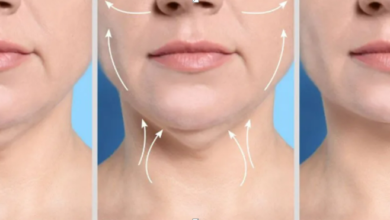Learn All About What Is a Thyroid Doctor Called?

Understanding thyroid health is crucial for overall well-being. The thyroid, a butterfly-shaped gland in the neck, plays a pivotal role in regulating various bodily functions. When facing thyroid-related issues, seeking the expertise of a specialized healthcare professional is essential. But what is a thyroid doctor called, and what do they do?
Importance of Thyroid Health
The thyroid gland produces hormones that control metabolism, energy levels, and even body temperature. Disorders such as hypothyroidism and hyperthyroidism can significantly impact daily life. Recognizing the importance of thyroid health is the first step toward overall well-being.
Role of Thyroid in the Body
The thyroid hormones, T3 and T4, influence the body’s metabolic rate, heart rate, and body temperature. They play a crucial role in maintaining a balanced and healthy internal environment.
Common Thyroid Disorders
Hypothyroidism and hyperthyroidism are common thyroid disorders, affecting millions worldwide. These conditions can lead to a range of symptoms, from fatigue and weight gain to anxiety and rapid heartbeat.
The Specialist for Thyroid Issues
Identifying the right healthcare professional for thyroid concerns is vital. But what is a thyroid doctor called, and how can you differentiate between various specialists?
Identifying Thyroid Doctors
Healthcare professionals specializing in thyroid disorders are often referred to as endocrinologists. These experts focus on glands and hormones, making them well-suited to address thyroid-related issues.
Different Types of Thyroid Specialists
Endocrinologists aren’t the only specialists who deal with thyroid problems. Otolaryngologists, commonly known as ear, nose, and throat (ENT) doctors, may also diagnose and treat thyroid conditions.
Educational Background and Training
Understanding the qualifications and training of thyroid doctors helps build trust in their expertise.
Qualifications of Thyroid Doctors
Endocrinologists typically complete medical school, followed by a residency in internal medicine and additional training in endocrinology. This extensive education equips them to handle complex thyroid cases.
Specialized Training
Otolaryngologists receive training in the surgical aspects of thyroid disorders. This includes procedures such as thyroidectomy, the removal of the thyroid gland.
When to See a Thyroid Doctor
Recognizing the signs of thyroid disorders is crucial for timely intervention.
Symptoms of Thyroid Disorders
Common symptoms include fatigue, weight changes, mood swings, and changes in skin and hair texture. Recognizing these signs can prompt a visit to a thyroid specialist.
Importance of Timely Consultation
Ignoring thyroid issues can lead to complications. Timely consultation with a thyroid doctor ensures accurate diagnosis and appropriate treatment.
Common Tests and Diagnostics
Thyroid doctors rely on specific tests and diagnostics to assess thyroid function.
Thyroid Function Tests
Blood tests measuring T3, T4, and thyroid-stimulating hormone (TSH) levels help diagnose thyroid disorders. Imaging studies, such as ultrasound and nuclear scans, provide a more comprehensive view.
Treatment Approaches
Once diagnosed, thyroid disorders can be managed through various approaches.
Medication
Medications like levothyroxine or antithyroid drugs help balance hormone levels. Regular monitoring ensures adjustments to medication as needed.
Surgery
In some cases, surgery may be required, especially for conditions like thyroid nodules or cancer. Otolaryngologists often perform these procedures.
Lifestyle Changes
In addition to medical interventions, lifestyle changes play a crucial role in managing thyroid health. This includes dietary adjustments, stress management, and regular exercise.
Holistic Approaches to Thyroid Health
Considering holistic approaches can enhance overall well-being.
Nutrition
A balanced diet, rich in iodine and selenium, supports thyroid function. Consulting a nutritionist can help create a diet plan tailored to individual needs.
Stress Management
Stress can exacerbate thyroid issues. Techniques such as meditation and yoga can be beneficial in managing stress and promoting thyroid health.
Exercise
Regular physical activity boosts metabolism and helps maintain a healthy weight, positively impacting thyroid function.
Finding the Right Thyroid Doctor
Choosing the right healthcare professional is crucial for effective management of thyroid issues.
Recommendations
Seeking recommendations from primary care physicians or friends who have dealt with similar issues can lead to reputable thyroid doctors.
Online Reviews
Reviewing online testimonials and ratings provides insights into the experiences of other patients, aiding in the selection process. Read more…
FAQs About Thyroid Doctors
How often should I see a thyroid doctor?
Regular check-ups are recommended, especially if diagnosed with a thyroid disorder.
Can I consult a general practitioner for thyroid issues?
While general practitioners can provide initial assessments, consulting a specialist like an endocrinologist is advisable for comprehensive thyroid care.
Are there natural remedies for thyroid disorders?
Certain lifestyle changes, including a balanced diet and stress management, can complement medical treatment. However, professional guidance is essential.
What questions should I ask a thyroid doctor during a consultation?
Inquire about treatment options, potential side effects, and long-term management plans. Understanding your condition is crucial for effective collaboration with your healthcare provider.
Is thyroid dysfunction hereditary?
Yes, thyroid disorders can have a genetic component. If there’s a family history, it’s essential to inform your thyroid doctor for a more comprehensive assessment.
Conclusion
Understanding what is a thyroid doctor is called and when to consult one is crucial for maintaining thyroid health. Whether it’s an endocrinologist or an otolaryngologist, seeking specialized care ensures accurate diagnosis and effective management. Don’t ignore the signs – prioritize your thyroid health for overall well-being.




